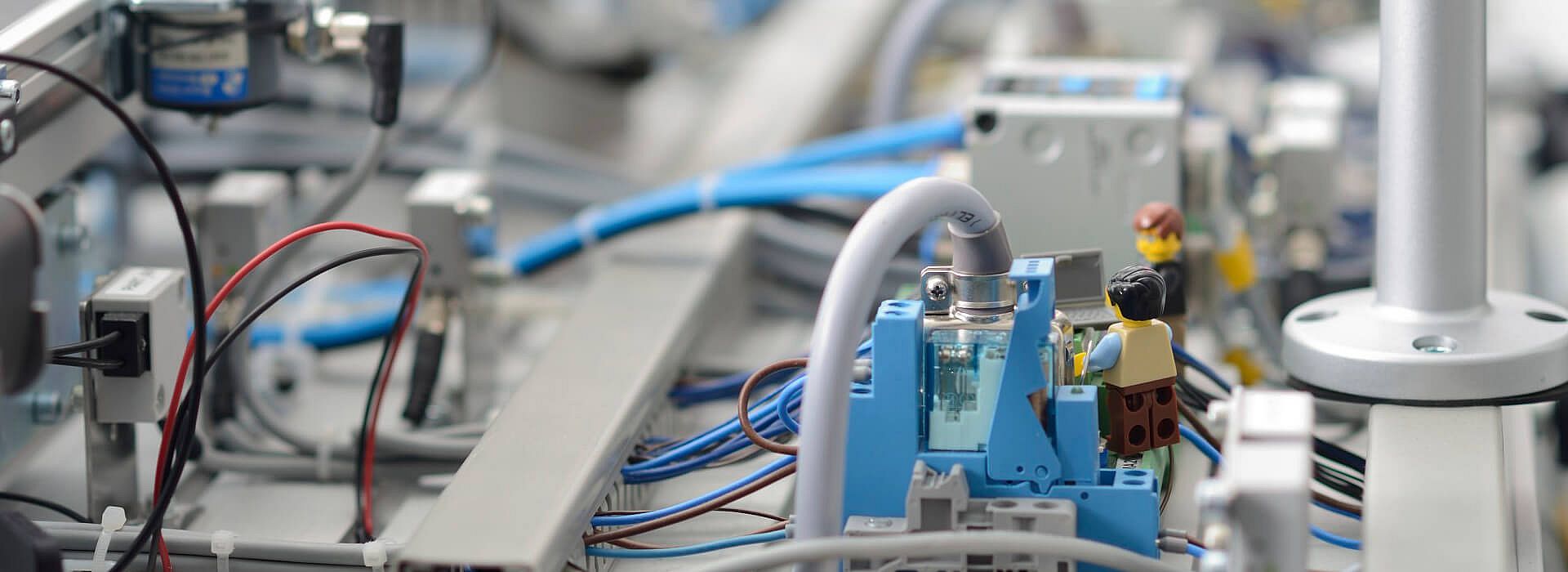Researchers at fortiss, the Bavarian research institute for software-intensive systems and services, demonstrate how this can be done with the "fortiss future factory". Using this “cognitive” production system, they develop methods that enable factories to independently adapt to changing requirements. This reduces programming and configuration complexity and allows manufacturers to set up individual products in small batches with minimal downtime.
The "fortiss future factory" prototype consists of ten stations that can be networked with one other and combined as required. The self-configuring system can currently assemble two products with three variants each. Examples include storage boxes, thermometers, toys or shavers.
"The unique feature of these machines is that they can describe themselves and store their capabilities in virtual "Yellow Pages” for registered machines", explains Alois Zoitl, head of the research group. The necessary product descriptions and production steps are stored in the system. Defined interfaces allow access to automatically evaluable descriptions of the capabilities of the respective factory modules, which are then automatically converted ad hoc when an order is received. A planning software developed at fortiss acts as a virtual operator that schedules, allocates and controls orders and "keeps an eye" on the production process.
Better algorithms
"The core element of our method is a clear software decoupling of production machines and components from one other as well as from the products to be manufactured. This makes it possible for the first time to combine production machines and components in any combination," says Zoitl, describing the new development. This is enabled by the higher computing power in the machines, a higher network bandwidth and better algorithms.
Sensors are an elementary part of the system. They currently record the operating status of the machines. In future, fortiss IT specialists would like to gain further information from the sensor data, such as possible failure behaviour, upcoming maintenance work or product quality. The biggest challenge is overcoming the complexity, which becomes greater as the number of products and production steps increase.
The fortiss concept can also be applied to other applications, such as textile production (socks, hats, etc.). The researchers' vision is that small or large customers create their own toys or socks in the online shop and then the order is directly completed by the versatile factory.


